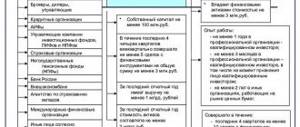The stock market helps in distributing resources between consumers and investors. By issuing securities, as well as their further repurchase, capital is redistributed. Each paper gives its owner a set of specific rights. Based on them, he can make demands on the issuer. The owner of securities is also called a holder. In fact, this is not entirely correct. These concepts have differences. For example, one person can be the owner of the papers. He is reluctant/has no time/no knowledge to engage in transactions, and he transfers the rights to the transaction to another person. So, the first one will be the real holder of the securities, and the second one will be the nominal one.
Transience of change
Placing your capital in exchange-traded goods is not without all sorts of bureaucracy and documentation. Most often, a whole range of documentary measures is used to preserve the rights of security owners. This practice is very important, considering how many instances one purchased share can go through before the rights to it are transferred to the rightful owner, that is, the one who paid for it.
Modern exchange trading prohibits individuals from conducting transactions on their own. They resort to the services of brokers - special intermediaries who have a license to conduct transactions within trading platforms.
Storage of valuables falls on the shoulders of depositories. Formally, under certain conditions, for example in the case of rapid speculation in a certain asset, a share located in the walls of the depository has the ability to change ten owners in a month, but will never be withdrawn. Only the corresponding depository record, which secures the right of its holder, will be changed.
What are the differences between an option and an option contract?
These types of legal relations appeared in domestic practice relatively recently. Therefore, not everyone understands the difference between an option and an option contract, but it is defined as follows:
- an option agreement contains the terms of the main transaction, and an option is an addition to existing obligations;
- An option agreement imposes obligations on both parties. An option allows the parties to choose whether to enter into a contract in the future;
- an option agreement creates obligations immediately after signing, an option only after acceptance of the offer;
- an option can be assigned, an option agreement cannot;
- An option agreement is most often gratuitous in nature, but this is not necessary.
- The option provides a reward.
The differences are clearly reflected in the norms of Articles 429.2 and 429.3 of the Civil Code of the Russian Federation.
Over-the-counter registration
Outside of the exchange, trading in documentary goods also involves huge capital investments. One of the options for a security holder is to sell them. This can happen without listing on the trading platform.
An over-the-counter sale is formalized in person, by a lawyer concluding an appropriate agreement for the transfer of material, as well as receiving a certain amount instead, or by specifying other conditions for the transfer of rights.
Such a sale is documented not only by a contract, but also by registration with a special institution - the registrar. This name refers to a legal entity that has a license to consolidate all transactions related to the sale and transfer of rights to certain securities. The task of such a registrar is to support transactions and transfer the results obtained to the account of holders of shares/bonds or other types of documentation.
Thanks to the presence of registers of owners, shares will never be lost and can be found by a potential buyer. In the same way, these transactions are controlled by the tax services, which are obliged to collect tax from the seller on the profit received by him to the state budget.
The approach to registration activities may vary. For example, in Russia there are about 40 representatives of this industry. In the Republic of Kazakhstan, in Kazakhstan, all such responsibilities fall on the shoulders of the Unified Securities Registrar, which has a network of representatives.
When is the contract drawn up and what is included in it?
An option agreement can be drawn up in various situations:
- option agreement for the purchase and sale of a share. This type of legal relationship has become somewhat widespread. It is based on general principles with only one difference - it is subject to notarization, unlike other types of options;
- granting the right to acquire other property rights. Previously, before the introduction of Articles 429.2 and 429.3 of the Civil Code of the Russian Federation, the courts considered such transactions either as preliminary agreements or as an agreement with a condition. The deal is quite similar in nature, but has differences.
An LLC share option agreement, like any other type, differs from a preliminary agreement in the following:
- item. An option to conclude a purchase and sale agreement provides the acquirer with the right to require the seller to perform specified actions. A preliminary agreement is an obligation to conclude the main one;
- moment of obligation. In a preliminary agreement, it is assumed that the parties will enter into a new obligation within a specified period, on agreed terms. The option accepts the consent already given;
- an option can be assigned to a third party, while a preliminary agreement, on standard terms, cannot be assigned (as well as an option agreement);
- the preliminary agreement does not have a financial component, that is, no right is transferred for the fact of its conclusion. An option in a purchase and sale agreement is provided on a reimbursable basis, unless otherwise stated in the text.
The share purchase option agreement must contain the following conditions:
- details of the offeror (seller) and holder (buyer);
- the subject of the contract, that is, an indication of the presence of acceptance of the irrevocable offer;
- bonus. According to general requirements, the contract is of a compensated nature, therefore it must contain the amount of remuneration. The law does not prohibit the conclusion of gratuitous options, but this condition must also be expressly stated in the text;
- term. It is mandatory to indicate the validity period during which the holder can exercise his right to accept the offer. If the term is not specified, it will be considered that it is concluded for one calendar year;
- option terms. The contract may include those conditions upon the occurrence of which the holder has the right to accept the offer;
- form. The contract is concluded in the form that is required for the main transaction. Therefore, an option agreement to purchase a share in an LLC is subject to mandatory notarization;
- guarantees. This condition is necessary for the holder, since the period between acceptance of the offer and conclusion of the contract can be significant. the holder must be sure that he will retain his right in fact, that the seller will not transfer the share to another person during this period;
- the possibility of assigning rights under an option. Unless otherwise expressly prohibited by the text of the transaction, the transfer is considered possible.
The option agreement for the LLC and the share in it must contain all the conditions mandatory for the purchase and sale of the company.
Legislative basis of the register
The Law “On the Securities Market” is key in this area. He forms the concept of accounts as:
The activities of maintaining a register of owners of securities include the collection, recording, processing, storage of data constituting the accounting of asset owners, and the provision of information from the records of owners of securities.
The register of owners of securities is a system of records formed at a certain point in time about persons for whom personal accounts have been opened (hereinafter referred to as registered persons), records about shares and bonds accounted for in these accounts, records about encumbrances and other records in accordance with the legislation of the Russian Federation.
The person carrying out the activities of maintaining the account is called the registry holder. The holder on behalf of the issuer or the person obligated under the Central Bank may be a professional participant in the securities market who has a license to carry out management activities (hereinafter referred to as the registrar), or in cases provided for by federal laws, another professional market participant.
Contract holders and misrepresentation
In the insurance context, contract holders exchange premiums for contractual benefits. Any person or group of persons purchasing insurance will be considered the contract holder.
The terms of the contract define the conditions under which the contract holder receives benefits. If a contract holder violates one or more terms or conditions of the contract agreement, he may lose some or all of his benefits. For example, an automobile insurance policy contract must comply with many of the provisions contained in the insurance policy in order to recover losses.
Policies typically give insurers the ability to deny claims if insured parties make material misrepresentations or withhold material information when applying for insurance. If an applicant for a car insurance policy fails to mention that they have a child in their household who is over driving age, the insurance company can legally terminate their rights as a contract holder if the child is involved in an accident.
Insurance companies will cancel or limit benefits if information is concealed or misrepresented. Misrepresentation involves actively providing incorrect information to an insurance agent when purchasing a policy, while concealment technically involves failing to provide information that could change the terms of the policy.
Asset Holders
The concepts of holder and owner are often used interchangeably. From a legal point of view, this is a mistake.
Nominee holder of securities is a depositary, on whose personal account (depository account) the rights to securities owned by other persons are taken into account.
A nominee holder of securities is a person who has the right to dispose of a share, but does not own all the rights that are guaranteed by it. The holder is often a broker who conducts the affairs of his client, or a depository that stores these assets.
Formally, it is reasonable to consider even a collector transporting assets, or any other person holding them in his hands, as a nominal person. But this approach cannot be applied to documentary certifications, where the name of the owner is officially assigned.
All actions that the holder will perform must either be agreed upon with the legal owner, or permitted by a special document transferring authority. Most often, the basis for such a transfer is brokerage activity, which consists of performing certain actions related to assets owned by other people.
What does "hold papers" mean?
This phrase means to own and control existing papers. This can be done by one person or by different ones. In fact, you don't need to hold the papers in your hands. They can be stored in the depository (paper version) or recorded in the depository database (electronic version). As transactions are completed, the registrar transfers the right from one owner to another. Transactions are carried out online, so the system always reflects current information about the current owners.
Owners
The owner of an asset is only the person who legally has all the rights to use, store and transfer a certain object. Certificated shares and bonds form separate documentation around themselves, certifying the rights of their owner.
Only the true owner can sell, donate, exchange or perform any other actions with the asset. Receiving income from it is also the main shareholder's opportunity.
Dividend income, requirements for repayment of debt obligations, bonds, checks, bills, as well as the sale of these securities on the secondary market - all this is included in the list of the main property rights of the established owner.
Working conditions for nominal owners.
The work of nominal managers has its own subtleties that you need to know. Let's look at the main ones:
- The securities come into nominal possession after opening a special account at the depository and transferring assets to it. Many people mistakenly believe that ownership begins immediately after signing the contract. Actually this is not true.
- As soon as a special account is opened for the nominal owner, the account of the real owner of the securities will be closed. However, all actions with assets will be carried out on his behalf. He will periodically give orders to the nominal manager, who is obliged to carry them out.
- Nominee ownership differs from fiduciary ownership in that the nominal owner cannot carry out any actions without receiving an order. All transactions are carried out only on behalf and knowledge of the owner. Trust management has a slightly different scheme. By concluding a trust management agreement, the client gives the manager the right to perform any actions with his papers that he deems necessary. It is important that these actions bring benefits to the real owner. Sometimes in practice, the real holder does not agree with the actions of the trustee, but the agreement allows this.
- The nominal owner is a key participant in the exchange market. He oversees the interests of the owner of the securities. He solves the most time-consuming and complex issues for a commission. For a real holder, all these costs can be recouped in the future.
It is not always clear whose interests the nominee represents. This poses a problem for the issuer and registrar. When registering in the registry, the nominal owner does not notify what rights he is endowed with, and the registrar does not have the authority to require a signed agreement for examination. The threat here is mostly for the issuer. If the nominal owner has been given the right to vote at meetings, and he has collected an impressive block of shares from the real owners, then his vote can influence the work of the company. Such cases often occur in practice.
It is possible to partially avoid such situations by law. The law allows the registrar to require the nominee to disclose information about the actual holders of the securities. But this does not exclude the assembly of a large number of voting shares in one hand. This conflict issue still remains acute.
The practical side of the issue
It is important to understand the differences between trust management and nominal holding. The latter implies a situation in which a market participant does not have the right to dispose of assets without the permission and knowledge of the customer. In the reverse model, the trustee can carry out transactions with the client’s assets and has permission to carry out trading operations with them on the exchange market.
Based on these reasons, in the provisions on the peculiarities of maintaining records, the accounts of the parties described above (nominee holder and manager) are always separated.
In practical investment activities, the denomination is a key element of the exchange market, since its tasks are centered around the representation and protection of the interests of the owner of the assets. An established performer takes on the most routine and complex tasks, naturally, for a monetary reward. But for the owner of an existing block of shares, the help of such a specialist is always justified and will quickly pay off in the future.
Kinds
A shareholder may belong to one of the following groups:
- Minority (English: “mainer” - secondary). Minority shareholders are the holders of an insignificant part of the total block of shares. They cannot influence the policies and activities of the company, but take part in meetings, voting and are present at the announcement of financial results (optional).
- Majoritarian (English: "maiger" - chief). A legal or natural person who owns a majority or controlling interest. Has the right to participate in the management of the JSC (joint stock company). Often this is the founder of the company or the direct heir of the owner.
There are also shareholders:
- The only ones are that the shares are owned by one person (100% stake).
- Retail – own a small number of shares, which give the right to participate in meetings and receive dividends.
The shareholder also differs by type of shares:
- Preferred - the opportunity to receive a strictly fixed income, but significantly limit the rights of the shareholder, in particular in managing the company. As a rule, separate groups of owners of preferred shares are created, which with a total number of votes influence major decisions of the company - merger or acquisition.
- Ordinary - give the right to receive non-fixed dividends, according to the decision of the Board of Directors and the meeting of shareholders.
The number of shareholders in a particular JSC is regulated by the laws of the country in which the company is registered. In the Russian Federation, the allowed range is: the minimum number is 1, the maximum is 50. For an LLC (limited liability company), the limit is 10 people (legal entities or individuals).
Problems of activity
In the nominal holding of securities, not everything goes as smoothly and simply as it might seem at first glance. Problems are possible in relationships, both with the owner of the assets and their registrar.
The intermediary acting as a “nominee” is not known to the registrar and the issuing enterprise, which makes it difficult to determine his place in potential transactions; it is not always clear which party the market participant represents.
In addition, the registrar does not have information about the established powers of the intermediary, and which of them the owner has delegated to his partner. Everything is complicated by the fact that the registrar cannot legally require an agreement between the parties to study its contents.
The procedure for providing services by a notary
The procedure will be carried out in the following order:
- choosing a notary. You can contact any specialist; it makes no difference who exactly will certify the document; there is also no territorial connection. This is very convenient, since the parties may be located in different regions;
- contacting the ward for an initial consultation. It is necessary to explain to the specialist the purpose of the agreement, he will tell you how best to consolidate the legal relationship;
- collect the necessary documents;
- conclude a main contract or an option immediately;
- conclude an offer if we are talking about an option agreement;
- certify acceptance of the offer if it occurs.
After this, the parties can only wait to receive documents confirming the transaction from the Federal Tax Service.
Other problems
Depending on the agreement established between the intermediary and his client, all purchased certificates can be recorded both on the face of the broker and on the client. This question is extremely important when signing a cooperation agreement.
In addition to possible disputes about ownership, for example, during the liquidation of a brokerage company, other, less fatal, but still troubles may arise.
So, for example, having registered assets with an intermediary, a shareholder cannot take out a bank loan against them as collateral, since formally they are not at his disposal. Of course, presenting a contract with a broker and reporting from him can correct the situation, but not all banks will agree to such a deep consideration.
The transfer of any asset will also go through a series of potential bureaucracies. During which it will be necessary to detach the asset from the partner, assign it to the owner, and only then will it be possible to transfer authority to dispose of this product.
Responsibilities
In addition to numerous and complex rights, the shareholder has responsibilities.
In particular:
- contribute capital for shares in the amount and manner determined by the company’s charter and legislation;
- sign a non-disclosure agreement regarding confidential information relating to the activities of the enterprise;
- if the shareholder is an employee of the company, he is obliged to sell his shares to the founders at market value after dismissal at his own request;
- a shareholder is obliged to notify the company's management if he has acquired a significant package of securities giving him the right to make management decisions. As a rule, these are packages from 5 to 30% of the total number of shares issued on the stock market.
But the acquisition of a significant amount of securities in most cases is not available to an ordinary individual. Purchases of this kind are strictly monitored by the Antimonopoly Committee (regulated by the Law “On Competition”, Article 18, paragraph 1,2).









